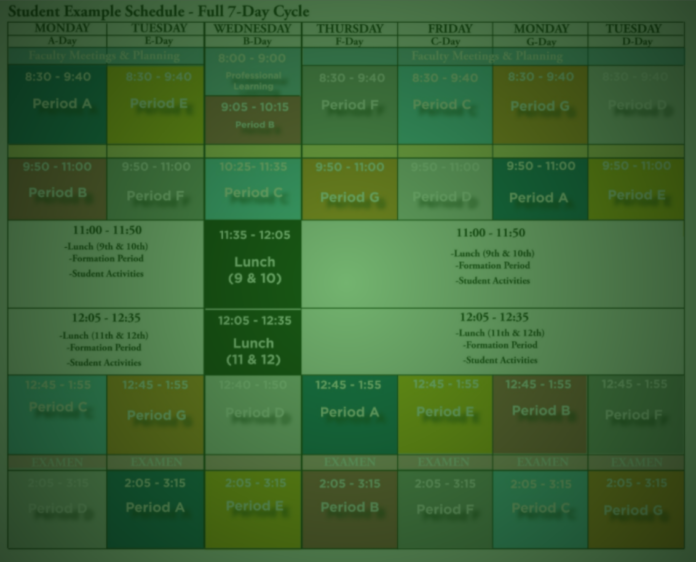By Kelly Coleman ’23
It has been a time of great change for Saint Ignatius. Amidst a return to full-time school after a prolonged absence, a newly implemented school schedule has sent waves throughout the student body, and debate rages on over whether or not the new schedule is necessary. The new schedule boasts a later start time and a transition to a snaking schedule from the previous nine period day. Ultimately, this new schedule is an improvement over the previous one and provides many unique benefits for students.
Perhaps the most uncontroversial part of the new schedule is the delayed start time. Studies have shown that early school start times are a leading cause of sleep deprivation in teens and that delaying school start times allows students to get additional sleep, boosting performance in school. Aside from catching up on sleep, the delayed start allots students free time in the morning that can be spent eating breakfast, catching up on homework before the day starts, or socializing with friends before the school day.
The transition from nine periods a day to a rotating schedule allows classes to be longer and cover more material instead of it being split up over multiple days. Having classes every other day also means that students are able to pace themselves and spread their homework out over multiple days instead of doing it all in one night, which is particularly useful for students who might have practice or other after school activities to attend. The new schedule also provides students with more breaks than the traditional schedule. The 10 minutes between classes and in-class breaks allow students to recuperate energy and prepare for additional learning, not to mention the new common period bisecting the day which allows students to come into third period refreshed and rejuvenated.
The addition of a snaking schedule, in which the classes you have each day rotate daily, may seem needlessly complicated at first; however, the improved schedule actually poses a unique advantage over traditional schedules. Researchers have found that the time of day at which a class is held noticeably affects student performance in that class, with classes taking place in the morning performing better and classes taken after lunch performing worse. By having classes “snake,” the new schedule prevents certain classes from always meeting at the end of the day when both students and teachers are exhausted and affords every class the opportunity to learn when students are at their most ready.
The new school schedule is ultimately better than the traditional nine period schedule and is far more beneficial to students. That is not to say that it is without its flaws (the scheduling of the new advisory periods comes to mind as a possible kink in the system), but in future years these flaws will be addressed and remedied accordingly.






